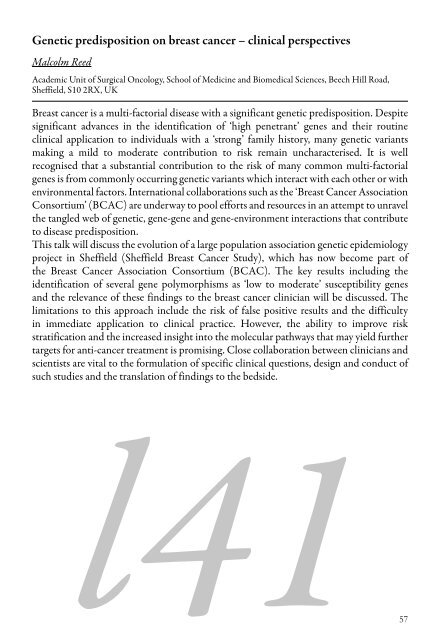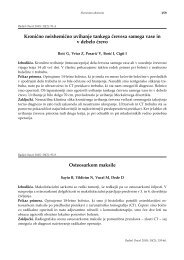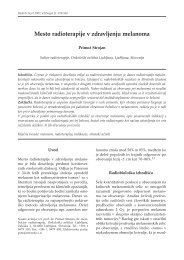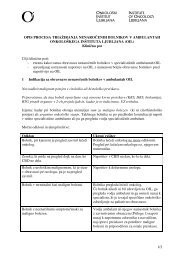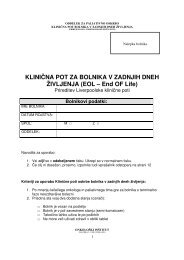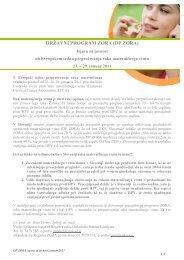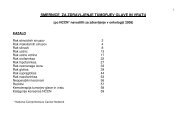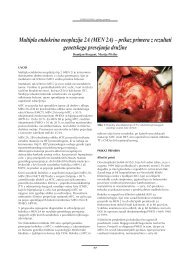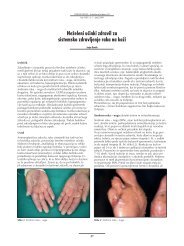Create successful ePaper yourself
Turn your PDF publications into a flip-book with our unique Google optimized e-Paper software.
Genetic predisposition on breast cancer – clinical perspectives<br />
Malcolm Reed<br />
Academic Unit <strong>of</strong> Surgical Oncology, School <strong>of</strong> Medicine and Biomedical Sciences, Beech Hill Road,<br />
Sheffield, S10 2RX, UK<br />
Breast cancer is a multi-factorial disease with a significant genetic predisposition. Despite<br />
significant advances in the identification <strong>of</strong> ‘high penetrant’ genes and their routine<br />
clinical application to individuals with a ‘strong’ family history, many genetic variants<br />
making a mild to moderate contribution to risk remain uncharacterised. It is well<br />
recognised that a substantial contribution to the risk <strong>of</strong> many common multi-factorial<br />
genes is from commonly occurring genetic variants which interact with each other or with<br />
environmental factors. International collaborations such as the ‘Breast Cancer Association<br />
Consortium’ (BCAC) are underway to pool efforts and resources in an attempt to unravel<br />
the tangled web <strong>of</strong> genetic, gene-gene and gene-environment interactions that contribute<br />
to disease predisposition.<br />
This talk will discuss the evolution <strong>of</strong> a large population association genetic epidemiology<br />
project in Sheffield (Sheffield Breast Cancer Study), which has now become part <strong>of</strong><br />
the Breast Cancer Association Consortium (BCAC). The key results including the<br />
identification <strong>of</strong> several gene polymorphisms as ‘low to moderate’ susceptibility genes<br />
and the relevance <strong>of</strong> these findings to the breast cancer clinician will be discussed. The<br />
limitations to this approach include the risk <strong>of</strong> false positive results and the difficulty<br />
in immediate application to clinical practice. However, the ability to improve risk<br />
stratification and the increased insight into the molecular pathways that may yield further<br />
targets for anti-cancer treatment is promising. Close collaboration between clinicians and<br />
scientists are vital to the formulation <strong>of</strong> specific clinical questions, design and conduct <strong>of</strong><br />
such studies and the translation <strong>of</strong> findings to the bedside.<br />
l41<br />
57


